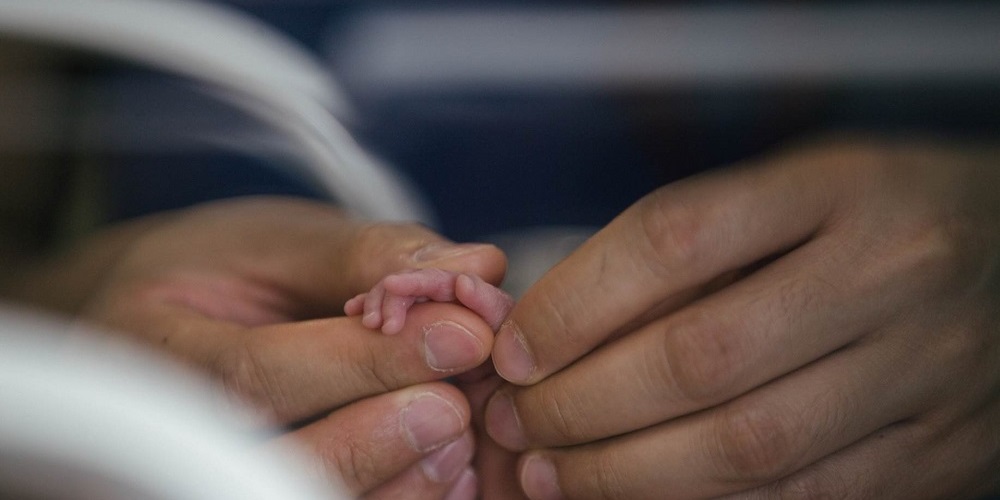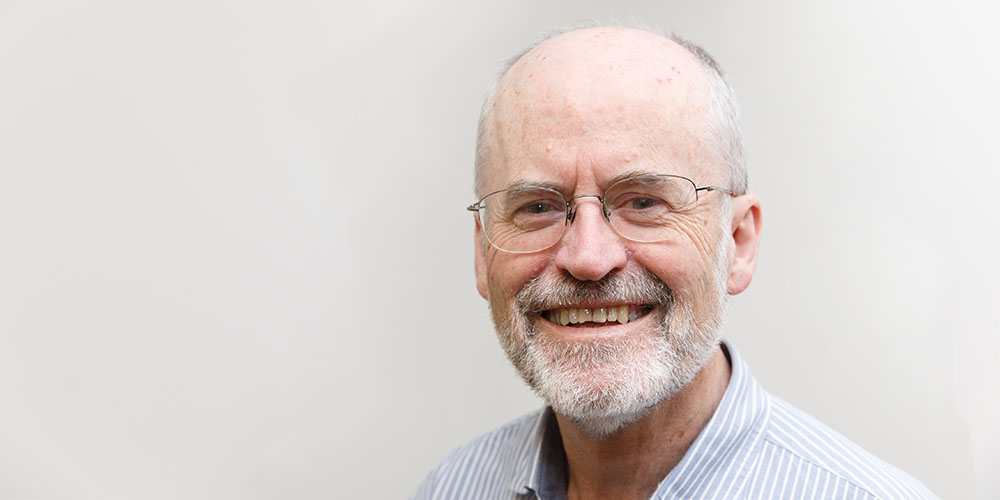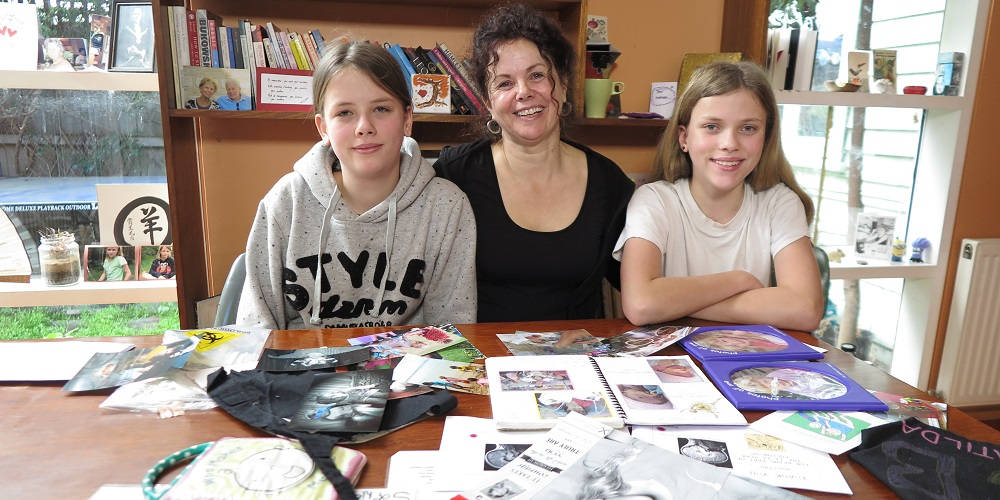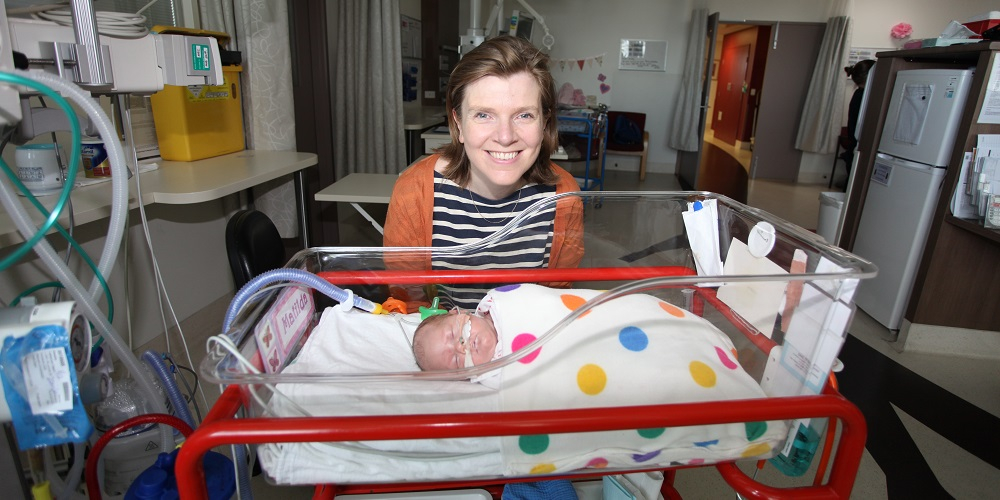
This year’s Cool Topics in Neonatology is celebrating the career of one of the world’s leading neonatal researchers Professor Lex Doyle from the Royal Women’s Hospital Newborn Research Unit.
Prof Doyle’s career spans more than 45 years and he has cemented himself as the leading expert on the long-term outcomes for premature babies, having established, with others, the Victorian Infant Collaborative Study Group in the 1980s which is continuing today; as well as working on longitudinal studies of children born at The Women’s, continuing on from Bill Kitchen.
“When I started, the focus was on the baby’s treatment alone for the period of time they were in our care,” Prof Doyle said. “It took a decade but finally understanding that we had a responsibility beyond the nursery was an interesting realisation for me, and really began my career’s focus on the longer term outcomes for these kids.”
Prof Doyle began working at the Women’s in neonatal intensive care shortly after finishing his university study and placements, in the mid-1970s.
“Babies who were less than 800 grams were not even considered for treatment,” he said. “Intensive care did not exist before the 1970s, and most very premature babies, those born before 32 weeks of pregnancy died because their lungs just weren’t developed enough and lacked a lining substance called “surfactant” which prevent our lungs from collapsing too much every time we breathe out.
“Advances in the 70s and 80s led to large increases survival, in particular ventilators to help babies breathe, and corticosteroids for mothers before giving birth to help the baby’s lungs mature. From 1991 we also could use surfactant injected into the windpipe, which helped their lungs to work betters.

Associate Prof Jeanie Cheong said Prof Doyle had been a central figure in global neonatal research. “He has brought huge comfort to parents by undertaking research that answers the most difficult questions about the future for their children,” Assoc Prof Cheong said.
“Because of his research, we know the majority of these babies are surviving with excellent quality of life and contributing to our society in its full.
“Lex never seeks the limelight, choosing instead to push his students to the fore. He is responsible for mentoring many young neonatal researchers who themselves are making significant contributions to the world of medical research.”
As they look at improving long-term outcomes, the research team led by Prof Doyle has developed an app to identify babies at high-risk of cerebral palsy, which will help to diagnose the condition sooner, allowing babies to access treatment earlier; and tested the long-term benefits of early psychological and physiotherapy supports for mum and babies.
“We have done a lot of studies that have made a big difference and those that disproved hypotheses too.”
Prof Doyle said in the early 80s paediatricians were told by leading experts that preterm birth would decline rapidly, that early labour would soon be prevented.
“We know now that preterm birth is caused by many different problems. We have seen the rate of preterm birth in fact rise, quite dramatically, from about 1 in 20 births to almost 1 in 10. Women are having babies later, they are more overweight, and there have been more multiple births with the advent of IVF and other fertility treatments, all of which increase the risk of preterm delivery. There is also much more surveillance of pregnancies that can detect potential problems where preterm birth can be seen as the least worse treatment option.”
The future, he says, is looking at how to reduce the long-term morbidity to very preterm babies. There has been some progress. Magnesium sulphate given to women threatening to deliver very early reduces the chance of the child having cerebral palsy after birth. Caffeine also improves long-term motor function in children born weighing less than 1251 g at birth.
“Another way to help the child is to give parents more skills to be involved in the nursery and after discharge home,” he said.
Not all changes have led to improved outcomes. It is possible that some advances in breathing support and intensive monitoring might be causing problems for some preterm babies.
“We made huge advancement in 70s and 80s in improving preterm babies’ ability to breathe and reduce the damage to their lungs. But we have not seen any advancement in reducing long-term lung problems in the past 15 years. Could it be because babies are spending too long on breathing supports or because we are offering too much support? We need to look into that,” he said.
Those presenting at the Cool Topics conference, run by the Royal Women’s Hospital, have been involved with Prof Doyle’s work or were mentored by him over his 40-year career.
“Lex does not like to have a fuss made over him and we fear, one day, he will just announce on the day he is leaving that he is retiring,” Prof Peter Davis, Director of Neonatal Research at the Royal Women’s Hospital, said. “We couldn’t let that happen so decided to theme this conference around his and his mentees’ incredible contribution to the world of neonatal research.”
Prof Doyle has published over 400 research articles, which have advised hospitals across the world on how to provide care to help save the lives of preterm babies, and minimise the chance of long-term disability associated with preterm birth.
Read related content from the Women's
-
 Caffeine boosts long-term breathing for very premature babies
Caffeine boosts long-term breathing for very premature babiesNew research has found that caffeine given to very preterm babies in their first weeks of life significantly improves their long-term breathing ability at 11 years of age.
Learn more -
 No improvement to the lungs of very preterm babies
No improvement to the lungs of very preterm babiesNew research into the lung function of eight-year-olds who were born more than 12 weeks too early in 2005 has found no improvement in their breathing ability compared with very preterm children born in the 1990s.
Learn more -
 Comprehensive study into long-term side-effects of premature birth
Comprehensive study into long-term side-effects of premature birthThe Women's leading researchers are undertaking the world's most comprehensive long-term study into the side-effects of being born premature
Learn more -
 Trial of innovative app to screen for cerebral palsy
Trial of innovative app to screen for cerebral palsyAn app developed at the Royal Women’s Hospital, Murdoch Childrens Research Institute and the University of Melbourne could revolutionise the way cerebral palsy is diagnosed and the timing of treatment.
Learn more -
 Early help cuts high rates of depression in mothers of preterm babies
Early help cuts high rates of depression in mothers of preterm babiesEarly help for mothers of premature babies dramatically cuts their very high risk of long-term depression, a world-first study published in the journal Paediatrics has revealed.
Learn more